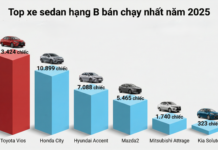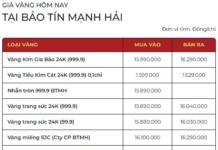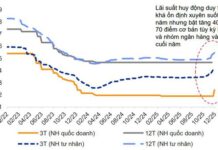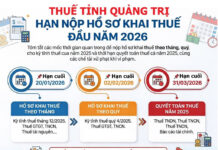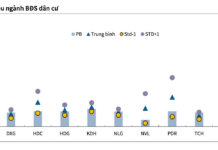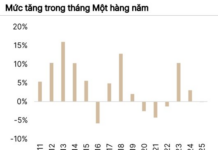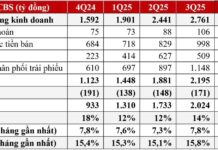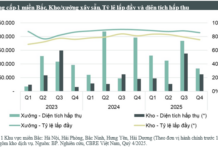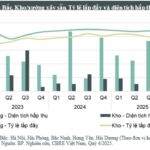The Smart City North Hanoi project is a 50-50 joint venture between Sumitomo and BRG Group. This 2.72 million square meter site is equivalent to over five times the size of Tokyo Disneyland and is strategically located between central Hanoi and Noi Bai International Airport. Due to this prime location, a future metro line to the airport is also on the cards.
“Real estate is a core business for the Sumitomo Group,” shared Hirokazu Higashino, the company’s Regional CEO for Asia & Oceania, in an interview with Nikkei in Hanoi on August 19. “We will create a world-leading smart city in Vietnam, the country with the highest growth rate in Southeast Asia.”
 The Smart City North Hanoi project covers an area that can accommodate five Tokyo Disneylands. (Photo: Yuji Nitta)
|
The smart city will encompass residential areas, office buildings, and shopping spaces. The project aims to attract Japanese and other international companies looking to establish their research and development centers. Additionally, there are proposals to build Vietnam’s tallest tower in this area.
Construction is expected to commence as early as the fourth quarter of this year, with the sale of individual houses anticipated to start in 2026. This residential area targets high-income earners, as well as 50,000 to 100,000 people looking to move out of cramped city apartments to the suburbs.
Sumitomo will take charge of developing the land and infrastructure for this smart city. The company has already made its mark in Vietnam through various large-scale projects, including industrial parks, power plants, and retail chains. This smart city project will be the biggest in Sumitomo’s Vietnamese investment portfolio.
The project received investment approval in 2018 but faced delays due to challenges in obtaining the necessary permits.
Expectations for the project are high. Sumitomo plans to bring its supermarket chain into the smart city. The use of clean energy, in collaboration with a nearby industrial park housing Canon and Panasonic factories, is also under consideration.
“We aim to become the world’s first carbon-neutral city,” shared Nguyen Thi Nga, Chairwoman of BRG Group.
Sumitomo is targeting Vietnamese consumers who aspire to improve their quality of life. Meanwhile, the Vietnamese government targets economic growth of over 10% from 2026.
However, with the uncertainty of tariffs from the US affecting Vietnam’s key export sectors, the government faces the challenge of stimulating domestic demand. Infrastructure investment is one of the strategies Vietnam is employing to counter the impact of trade barriers.
Vietnam’s real estate market is experiencing a positive trend. According to the Vietnam Real Estate Association, approximately 40,000 transactions were made in the first half of the year, almost double the number from the same period last year. The average price of an apartment in Hanoi has been steadily increasing, reaching 80 million VND per square meter ($3,040), according to the Ministry of Construction.
Riding on the wave of high demand, Japanese companies are ramping up their investment in Vietnam’s real estate sector, including collaborations with leading developer Vinhomes on large-scale projects.
Vu Hao (According to Nikkei Asia)
– 09:42 20/08/2025
A Multifaceted Perspective on Land Valuation for the 2024 Land Law Reform
“The topic of land valuation based on “market value” is sparking lively discussions as the 2024 Land Law is being drafted for amendment.”
“The GLAMOUR by SetiaBecamex: Elevating Standards of Living in Eco-Urban Style”
The GLAMOUR, the newest premium subdivision in EcoLakes My Phuoc, has just broken ground. With its elegant Neoclassical design, modern amenities, and strategic location, this project is poised to become an iconic residential and investment landmark at the gateway to Ho Chi Minh City’s northern boundary.
Spring Residences: An Elevated Standard of Living Amidst an Endless Spring Garden
Nestled atop a hill overlooking the lush million-pine valley of Thanh Xuan, the Spring Residences collection by BIM Land offers an exclusive lifestyle choice for a discerning community. With a contemporary design aesthetic, these residences provide a rich tapestry of experiences, fostering multigenerational bonds and a deep connection with untouched nature.
The Hauntingly Beautiful: A Forgotten Hotel in Hanoi’s Prime Real Estate to be Demolished for a Billion-Dollar Skyscraper
The long-abandoned Song Nhue Hotel, situated on prime land in Ha Dong ward, Hanoi, is finally set for demolition. With an investment of over VND 2,400 billion, the site will be transformed into a modern high-rise complex, marking a new chapter for this once-neglected area.


